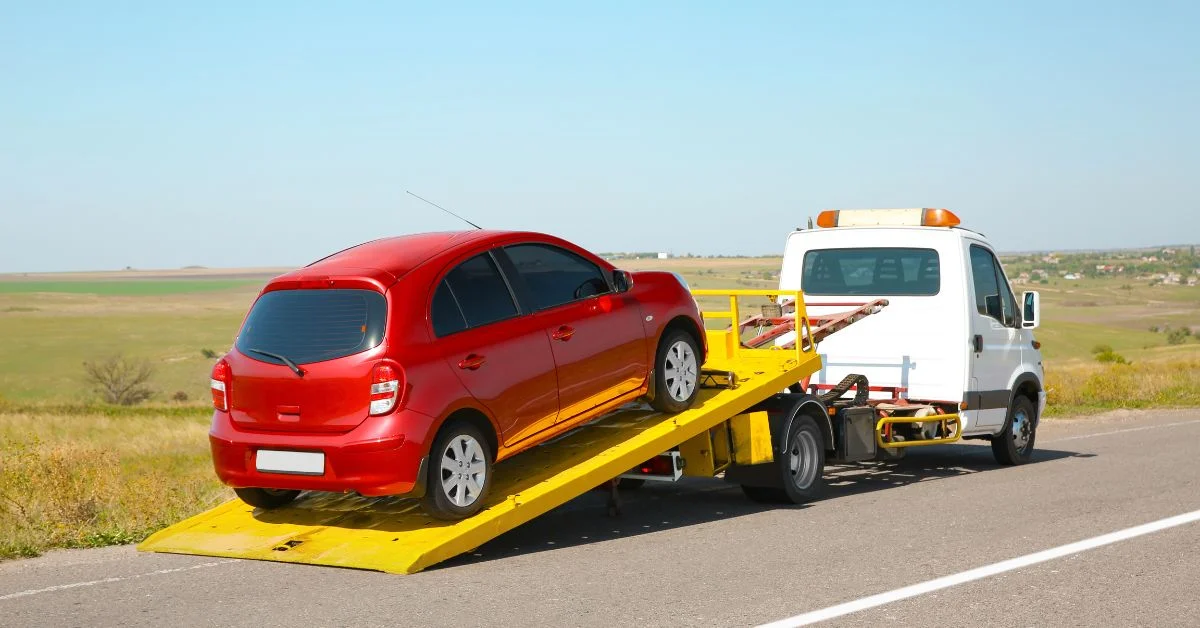Have you ever been driving and suddenly felt the panic of realizing your car dies while driving? It’s a terrifying experience that can happen to anyone, anywhere.
Whether it’s on a quiet street or the highway, knowing how to react when your engine stalls is crucial. In this guide, we’ll walk you through everything you need to know about what to do in this situation.
By the end of this post, you’ll be fully prepared to safely handle your car dying while driving and get back on the road as quickly as possible. Read on!
Stay Calm and Focused
The first and most important thing to do when your car dies while driving is to remain calm. Panicking will make it harder to think clearly and act quickly. Take a deep breath and try to focus on what you need to do next.
Turn down the gas and move your vehicle into a neighboring parking lot or to the side of the road. To warn other vehicles, make sure your warning lights are on right away.
Understand the Situation
Once your car is safely off the road, take a moment to understand what’s happening. A car dying while driving can be caused by many factors, from engine stalls to battery issues.
If the engine stalls suddenly and without warning, it could be due to a fuel pump failure or ignition system problems. Understanding the issue will help you take the right steps to resolve it.
If your car stalls due to a fuel pump issue, it’s important to evaluate the situation carefully. Questions like can you drive with a bad fuel pump often arise, as attempting to drive could worsen the issue or leave you stranded. Taking the time to diagnose the problem properly can help you make the safest decision.
Check Your Fuel Level
One common cause of a car dying while driving is running out of fuel. Check your fuel gauge to ensure you still have enough gas. If the needle is near empty, you may need to call for fuel delivery.
If you have roadside assistance coverage, this is a great time to use it. It’s a simple fix, but one that can easily be overlooked when you’re in a hurry.
Inspect the Dashboard
Look at your dashboard for warning lights or indicators. Some lights may tell you if the engine stalls due to fuel pump failure or alternator issues.
If the check engine light is on, it could be a sign of an ignition system problem or a mechanical issue. Pay attention to any abnormal readings and keep them in mind when calling for help.
Attempt to Restart the Engine
After assessing the situation, try restarting the car. Turn the key to the “off” position, wait for a few seconds, and then turn it back to “on” to see if the car starts.
If it doesn’t restart after several attempts, there could be a more serious issue at play, such as alternator issues or a malfunctioning ignition system. Trying to restart is one of the first steps you can take before seeking further help.
Check the Battery
If the car still won’t start, the battery may be the problem. If you see the battery light on your dashboard, it’s a clear indicator of a battery or alternator issue.
A dead battery could also mean that the alternator is failing to recharge it. You can try jump-starting the car with jumper cables if you have access to another vehicle. Battery maintenance tips like cleaning the terminals and checking for corrosion can help prevent future issues.
Try to Diagnose the Problem
If you feel comfortable doing so, try to diagnose the car problem further. Listen for any strange sounds, such as clicking noises, which could suggest issues with the starter motor or electrical system.
If you suspect fuel pump failure or ignition system problems, it’s best to call a professional. Avoid attempting complex repairs if you’re not familiar with your car’s mechanics.
Call Roadside Assistance
If your car still won’t start, don’t hesitate to call for roadside assistance. Many insurance policies include this service, which can save you time and hassle.
Roadside assistance can help with everything from jump-starting your battery to towing your car to a repair shop. Stay in your car, especially if you’re on a busy road, and wait for help to arrive.
Avoid Attempting Major Repairs
It can be tempting to try fixing your car on the spot, but attempting major repairs can be dangerous if you’re not familiar with the issue. Ignition system problems or fuel pump failures require professional attention.
Leave the repairs to the experts and focus on staying safe until help arrives. In the meantime, keep your hazard lights on and stay out of the way of traffic.
Understand Common Causes of a Car Stalling
Knowing the common causes of car stalling can help you understand the issue. Engine stalls can occur due to problems like fuel pump failure, alternator issues, or dead batteries.
If your car dies while driving, these are likely culprits. More info here on how these components work and how to spot the signs of failure can help you identify problems faster.
Look Into Preventative Measures
Once your car is back in working order, consider taking preventative measures to avoid a breakdown in the future. Regular maintenance checks, such as inspecting the battery and ensuring the fuel system is in good condition, can prevent many common causes of stalling.
Routine servicing will also help catch problems with the alternator or ignition system early, reducing the likelihood of a breakdown. Following these steps can help keep you safe and avoid unexpected issues.
Plan for the Unexpected
No one expects their car to die while driving, but having a plan in place can make the situation less stressful. Always keep your phone charged and have emergency numbers handy, including your roadside assistance provider.
Familiarize yourself with basic car maintenance so that you can spot issues before they become emergencies. Preparing for the unexpected by reading more info here will help you stay calm and confident if you ever find yourself in this situation.
How to Handle It When Your Car Dies While Driving
When your car dies while driving, it’s essential to stay calm and follow the right steps. By diagnosing the issue, calling for roadside assistance, and avoiding risky repairs, you can manage the situation safely.
Whether the problem is fuel pump failure, alternator issues, or something else, the key is not to panic. Regular maintenance and good driving habits will reduce the chances of this happening.
Did you like this guide? Great! Browse our website for more!









